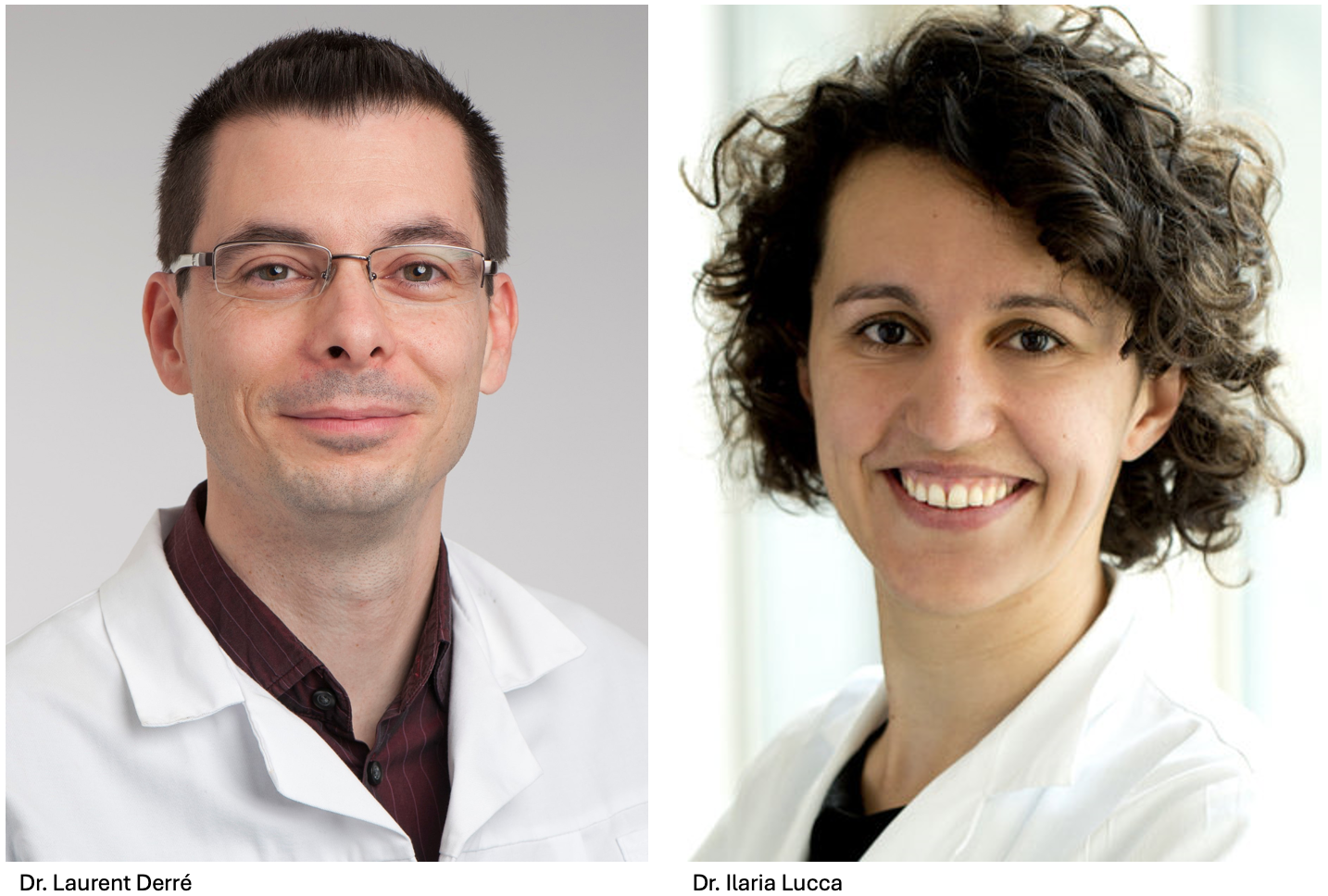Bladder cancer – Dr. Laurent Derré (UNIL) and Dr. Ilaria Lucca (CHUV)
Exploring the anti-tumor functions of immune cells in bladder cancer

Bladder cancer (BCa) is a major health concern, causing approximately 1’400 deaths every year in Switzerland alone. In comparison to prostate cancer, for which recent advances have increased the 5-year survival rates significantly, progress on bladder cancer has stalled. BCa are classified according to how invasive the tumor is at the time of the initial diagnosis. Tumor recurrence is frequent, even when the patient was initially categorized as low risk. For medium- and high-risk patients, it is even worse, as their tumors frequently progress to a muscle-invasive state that requires cystectomy (removal of the bladder). A major challenge is to prevent an initially non-invasive bladder cancer from progressing to muscle invasive disease, which has a much worse prognosis.
So far, the therapeutic approach most commonly used is an intravesical therapy. In this procedure, an immune stimulating agent (such as the Bacillus Calmette-Guerin inoculum (BCG)) is introduced into the bladder to prevent or at least delay tumor recurrence and/or growth. Unfortunately, about 20 to 30% of all patients discontinue the treatment due to severe side effects. Also, it has been shown that even when treated, 20% of all patients experience early recurrence, and only about 45% remain cancer-free for five years. There is an urgent need to find new prognostic tools to identify patients at risk for BCG failure and to predict tumor recurrence/progression. More robust prediction tools may be able to improve the patient’s life quality.
This TANDEM project aims to explore the potential of Vẟ2 T cells (a subtype of T lymphocytes) in this respect. These cells are a subgroup of T cells that infiltrate tumors (called tumor-infiltrating lymphocytes). Recent research has shown that they have the ability to control tumor growth in mice. It remains to be shown that this is relevant to humans, which is why more research using human samples is needed. Specifically, this project will unveil the Vẟ2 T transcriptomic landscape at the single cell level, with the hope that it can serve to identify new biomarkers and allow for the development of new treatments for BCa.

